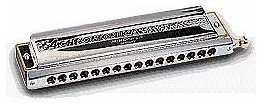
Oscar Peterson left us last Sunday - very bad news for piano jazz fans like me. He leaves a magnificent body of work, as bandleader and accompanist. I liked Nat Hentoff's reflection on Oscar, which appeared in today's Wall Street Journal. Here is what Nat wrote...
Oscar Peterson:
A Jazz 'Behemoth' Moves On
By NAT HENTOFF
December 27, 2007
Only when it was absolutely necessary, Oscar Peterson wrote, would he go on stage before a concert to check out the piano, because doing so "might lead to preconditioned ideas, and they can in turn interfere with the creative process so essential to a creative jazz concert."
For Peterson, who died on Sunday at age 82, his full mastery of the instrument enabled him to keep striving for what to him was his ultimate reason for being. In his equally masterful autobiography, "A Jazz Odyssey: The Life of Oscar Peterson" (Continuum, 2002), he said of the "dare-devil enterprise [the jazz experience]" in which he engaged for so many years that it "requires you to collect all your senses, emotions, physical strength and mental power, and focus them totally on the performance. . . every time you play. . . . Uniquely exciting, once it's bitten you, you never get rid of it. Nor do you want to; for you come to believe that if you get it all right, you will be capable of virtually anything. That is what drives me, and I know it always will do so."
He wrote that after a stroke in 1993 that, at first, limited the use of his left hand. But "the will to perfection," as he called it, kept driving him, and as a result he regained much of his customary skill, and with it the satisfaction of continuing to surprise himself.
Born in 1925, Peterson was mandated by his father to practice piano at a very early age; but it was hearing Nat "King" Cole that fired his enthusiasm, and he won a talent contest at the age 14. By the 1940s, Peterson was already a presence on the radio in his native Canada and in Montreal clubs. But his audience began to greatly expand when jazz impresario Norman Granz heard him and brought him to New York's Carnegie Hall in 1949 for one of Granz's "Jazz at the Philharmonic" concerts, where the competition was so intense that many careers of the participants were enhanced.
Granz became Peterson's manager and close friend as they toured Europe and other continents. Also a producer of records on his Verve and Pablo labels, Granz extensively featured Peterson, not only as leader of his own trios but also as an accompanist for a wide range of other jazz masters whom Granz recorded. Among them were Louis Armstrong, Dizzy Gillespie, Lester Young, Coleman Hawkins, Ella Fitzgerald, Benny Carter, Ben Webster, Billie Holliday, Duke Ellington and Roy Eldridge.
As classic jazz players used to say of extraordinary peers, Peterson had "big ears." In all the varying contexts of these Granz recordings, he remained himself while also being completely consonant with the diverse stylists on those sessions.
A fascinating section in his autobiography describes what each soloist required of Peterson as an accompanist. For instance, Eldridge "would slide over to me and quietly ask, 'Can I get my strollers, please?' By this he meant that he intended to start simply with a mute aided by Roy Brown's bass in the lower register.
"He trusted the remaining members of the rhythm section not only to sit out and allow the excitement to build between him and Ray, but more importantly, to anticipate exactly where to re-enter and move him up a few notches emotionally."
Moreover, as a writer from the inside of the music, Peterson's profiles of other longtime associates prove him to be a master practitioner of jazz history and criticism. As he wrote: "To have played for these and other behemoths of the music world certainly served to educate me in areas in which that type of education just isn't available [and] served to deepen my true realization of the immensity of the music we know as jazz."
Because of the scores of albums Peterson recorded, it's difficult for me to select any as the best. So, subjectively, two that make me rise and shout are, "The Oscar Peterson Trio at the Stratford Shakespearean Festival" (1956) and "Night Train" (1962). (Both are on the Verve label).
Another autobiography that matches Peterson's in moving the reader into the life force of jazz is Sidney Bechet's "Treat It Gentle" (Da Capo Press, 2002). He writes of growing up in New Orleans: "That music, it was like waking up in the morning and eating. . . it was natural to the way you lived and the way you died."
And for Peterson, the pleasures of being inside that music recalled, he wrote, "the joyful exclamation [guiarist] Barney Kessel produced after [the] first evening in my trio. He came over to me after the last set, shook his head, and said with that Oklahoma accent, 'Oscar, that was better than sex!'"
Wherever he went around the world, Peterson's effect on audiences demonstrated the truth of Art Blakey's invitation to extreme pleasure: "You don't have to be a musician to understand jazz. All you have to do is be able to feel."
Mr. Hentoff writes about jazz for the Journal.



2 comments:
Thank you for sharing an ode to one of the true greats of jazz.
Rick, you are most welcome. It is inevitable that the old masters will pass, but it always hurts when the inevitable happens.
Mr. G
Post a Comment